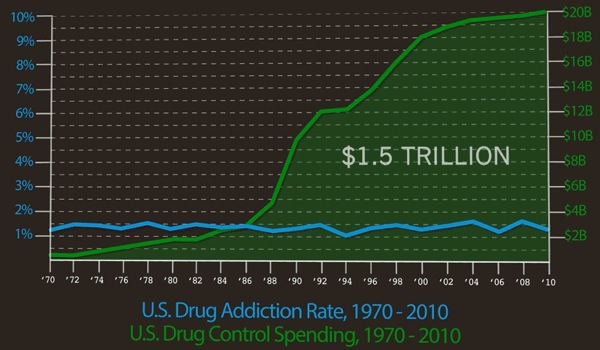themarshallproject | “Tell Your Children: The Truth About Marijuana, Mental Illness, and Violence” is an intensively researched and passionate dissent from the now prevailing view that marijuana is relatively harmless. The book is a “bullhorn” (his word) for scientists and physicians whose research has, he argues, been drowned out by the triumphal cheers of the marijuana lobby.
He exchanged emails with TMP’s Bill Keller.
The Marshall Project: Alex, you’re really swimming against the tide. Both public opinion and the law have moved dramatically in favor of marijuana, and you’re arguing that pot is connected to psychosis and violent crime. Before we get to your evidence, what drew you to this subject?
Alex Berenson: My wife Jacqueline is a forensic psychiatrist. She evaluates the criminally mentally ill. She told me that nearly all her patients had used marijuana heavily, many at the times of their crimes. At first I didn't really believe her—stupidly—but she encouraged me to evaluate the evidence myself. And the more I read, the more I realized she was right. Marijuana drives a surprising amount of psychosis, and psychosis—besides being a terrible burden for sufferers and their families—is a shockingly high risk for violent crime.
TMP: Last I checked, 33 states and the District of Columbia had legalized marijuana specifically for medicinal purposes. Doctors are apparently prescribing pot for pain, Parkinson’s, PTSD, epilepsy, multiple sclerosis and most recently some forms of autism. Pot has been held out as an answer to the opioid crisis—pain relief without the risk of a lethal overdose. Are you saying all these politicians and doctors are deluded?
AB: This question fundamentally misunderstands medical marijuana. The confusion is not surprising, as the cannabis advocacy community has done everything possible to confuse the way medical legalization works in practice. Marijuana is not "prescribed" for anything. It can't be, because the FDA has never approved it to treat any disease, and there is little evidence that smoked cannabis or THC extracts help any of the diseases you mention, except pain. Physicians "authorize" its use, usually after very short visits by patients who have come to them specifically to receive an authorization card. By far the most common conditions for which medical marijuana is authorized are pain and self-reported psychiatric conditions such as anxiety and insomnia, not diseases such as Parkinson's.
After receiving an authorization card, "patients" can then buy as much marijuana as they like for a year for any reason they choose. Nearly all were recreational users before they became "patients." And there is no difference between medical and recreational marijuana. They are the same drug. Further, the vast majority of physicians will not write authorizations, at least according to the states that keep track of physician authorizations. A tiny number of doctors—so-called "pot doctors"—write nearly all of them.
In other words, in nearly all cases, medical legalization is simply a backdoor way to protect recreational users from arrest. This has been a terrible mistake, mainly because it has further confused the public about marijuana's relative risks and benefits.
TMP: Your other—perhaps more contentious—conclusion is that marijuana may contribute to increases in violent crime. As you know, establishing causal links between crime rates and, well, anything, is extremely tricky. What convinced you that pot is a culprit?
AB: Psychosis is a known factor for violent crime. People with schizophrenia commit violent crime at rates far higher than healthy people - their homicide rates are about 20 times as high. Worse, they commit most of that crime while they are under the influence. Since cannabis causes paranoia—not even advocates dispute that fact—and psychosis, it is not surprising that it would drive violent crime. And in fact there are a number of good studies showing that users have significantly higher violence rates than non-users. Further, in researching the book, I found many, many cases where the causation appeared clear. In some cases it was as simple and obvious as, this person—with no history of violence—smoked, became psychotic, and committed a homicide.
TMP: You write that you don’t believe people should go to prison for using marijuana. How should the law deal with pot? Should it be regulated? Should it carry a warning label?







